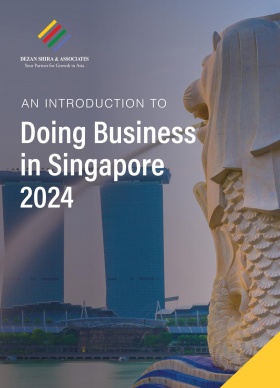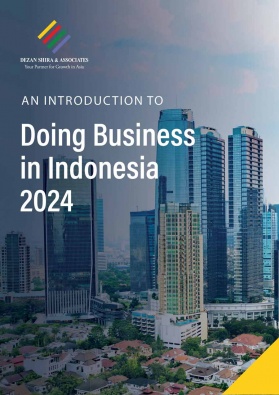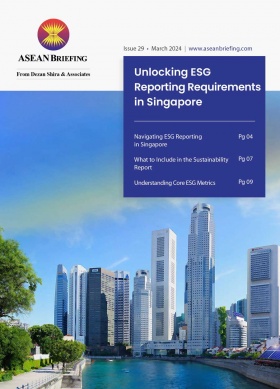Swiftonomics: Fueling Singapore’s Entertainment Hub Growth
The term “Swiftonomics” has recently emerged to describe the substantial economic impact driven by Taylor Swift’s global tours. Her influence extends far beyond just music; her concerts create ripples across local economies, boosting everything from tourism and hospitality to retail and transportation. As Singapore aims to establish itself as a premier entertainment hub in Asia, concerts such as Taylor Swift’s have huge economic impacts on the city-state.
The city-state secured exclusive access to the Eras Tour by making Singapore the only stop in Southeast Asia for the tour from March 2-9, 2024. It was rumored that the Singaporean government offered subsidies of up to US$3 million as part of the exclusivity agreement. The decision to invest in bringing such a high-profile event to Singapore highlights the city-state’s commitment to elevating its status as a global entertainment destination.
Understanding the economic impacts of Swiftonomics
Taylor Swift’s ongoing “Eras Tour” is projected to inject a staggering US$4.6 billion into the global economy. This figure rivals the GDP of some smaller nations and showcases the far-reaching economic power of large-scale entertainment events.
Her concerts drive economic activity beyond ticket sales, boosting sectors like hospitality, retail, and transportation. The essence of Swiftonomics lies in its ability to mobilize large crowds and significantly boost economic activity in host cities. his ripple effect is particularly evident in Singapore, where the city’s compact geography ensures that the benefits of such events are concentrated and widespread.Singapore’s aspiration as an entertainment epicenter
Singapore is already known for its strategic location, world-class infrastructure, and thriving tourism industry. The city-state successfully hosts major international events such as the Singapore Grand Prix — which drew over 260,000 visitors in 2023, contributing about $120 million to the local economy.
According to the Singapore Tourism Board, the city-state welcomed over 13.6 million international visitors in 2023, a significant rebound from the pandemic years, reflecting the renewed interest in Singapore as a travel and entertainment destination.
This connectivity allows Singapore to attract tourists from neighboring countries such as Indonesia, Malaysia, and Thailand, as well as farther afield from China, India, and Australia — Since February 9, China and Singapore implemented a mutual visa-free entry policy for their citizens, allowing stays of up to 30 days. This policy has the potential to further boost tourism numbers, particularly around major events like international concerts.
Singapore’s world-class infrastructure sets it apart from many other potential entertainment hubs in the region. The Marina Bay Sands, for example, offers state-of-the-art facilities for hosting large-scale concerts and events, while the Singapore Sports Hub can accommodate over 55,000 spectators, making it one of the premier venues in Southeast Asia. The city’s reputation for efficiency and safety also makes it a preferred choice for international event organizers.
Moreover, Singapore’s government is known for its robust support of the arts and entertainment sectors. The Singapore Economic Development Board (EDB) and the Infocomm Media Development Authority (IMDA) have been actively promoting Singapore as a center for media and entertainment. Initiatives such as the Singapore Media Festival and Singapore International Film Festival are already drawing global attention, demonstrating the city’s growing role in the international entertainment landscape. These efforts are part of a broader strategy to diversify the economy and reduce reliance on traditional sectors like finance and manufacturing.
In addition to attracting international artists and events, Singapore also focuses on cultivating a vibrant local arts scene. The government has invested in arts education and supported local artists through grants and programs. Events like Baybeats, Singapore’s annual alternative music festival, showcase local talent and provide platforms for emerging artists to gain exposure. This focus on nurturing homegrown talent is essential for creating a sustainable and diverse entertainment ecosystem that can thrive independently of international acts.
The economic impact on Singapore
According to Trip.com, the six concerts helped increase Singapore-related bookings by 275 percent compared to two weeks earlier (March 15-23, 2024). Singapore inbound flights also increased by 186 percent while tour and accommodation bookings rose by 2,373 percent and 462 percent respectively.
Further, the Swift concerts added around US$222-296 million to Singapore’s economy. These figures underscore the potential for significant economic gains from hosting major entertainment events.
Conclusion
Swiftonomics exemplifies the economic potential of the entertainment industry. For Singapore, becoming a leading entertainment hub in Asia could bring substantial economic rewards, from boosting tourism revenues to enhancing its global standing. By attracting high-profile artists and events, Singapore can tap into new growth opportunities, diversify its economy, and further cement its role as a global city.
About Us
ASEAN Briefing is produced by Dezan Shira & Associates. The firm assists foreign investors throughout Asia and maintains offices throughout ASEAN, including in Singapore, Hanoi, Ho Chi Minh City, and Da Nang in Vietnam, in addition to Jakarta, in Indonesia. We also have partner firms in Malaysia, the Philippines, and Thailand as well as our practices in China and India. Please contact us at asean@dezshira.com or visit our website at www.dezshira.com.
- Previous Article Unlocking Prosperity: Key Reasons to Invest in Timor-Leste
- Next Article New Digital Nomad Visa: Thailand’s Plan to Boost Tourism








